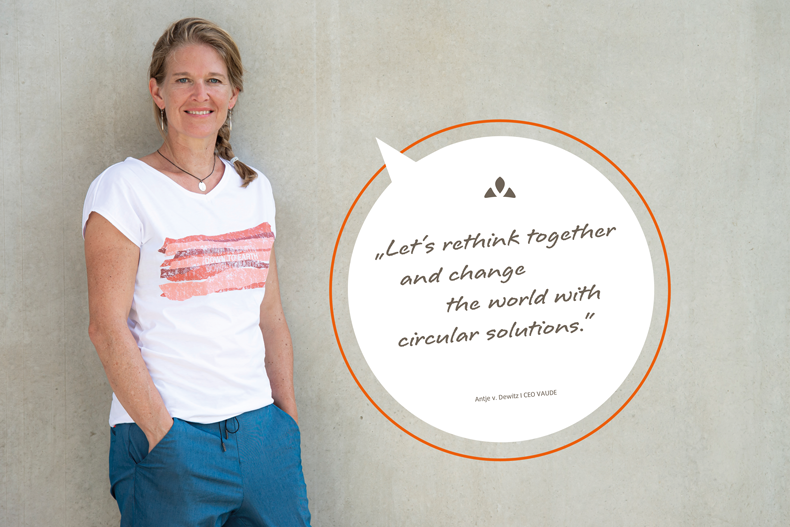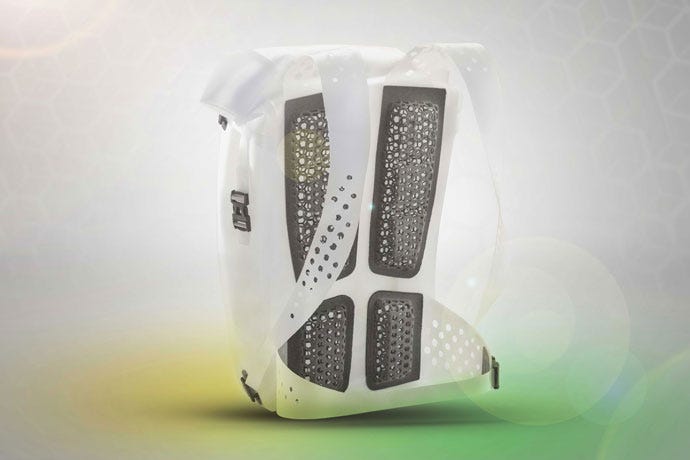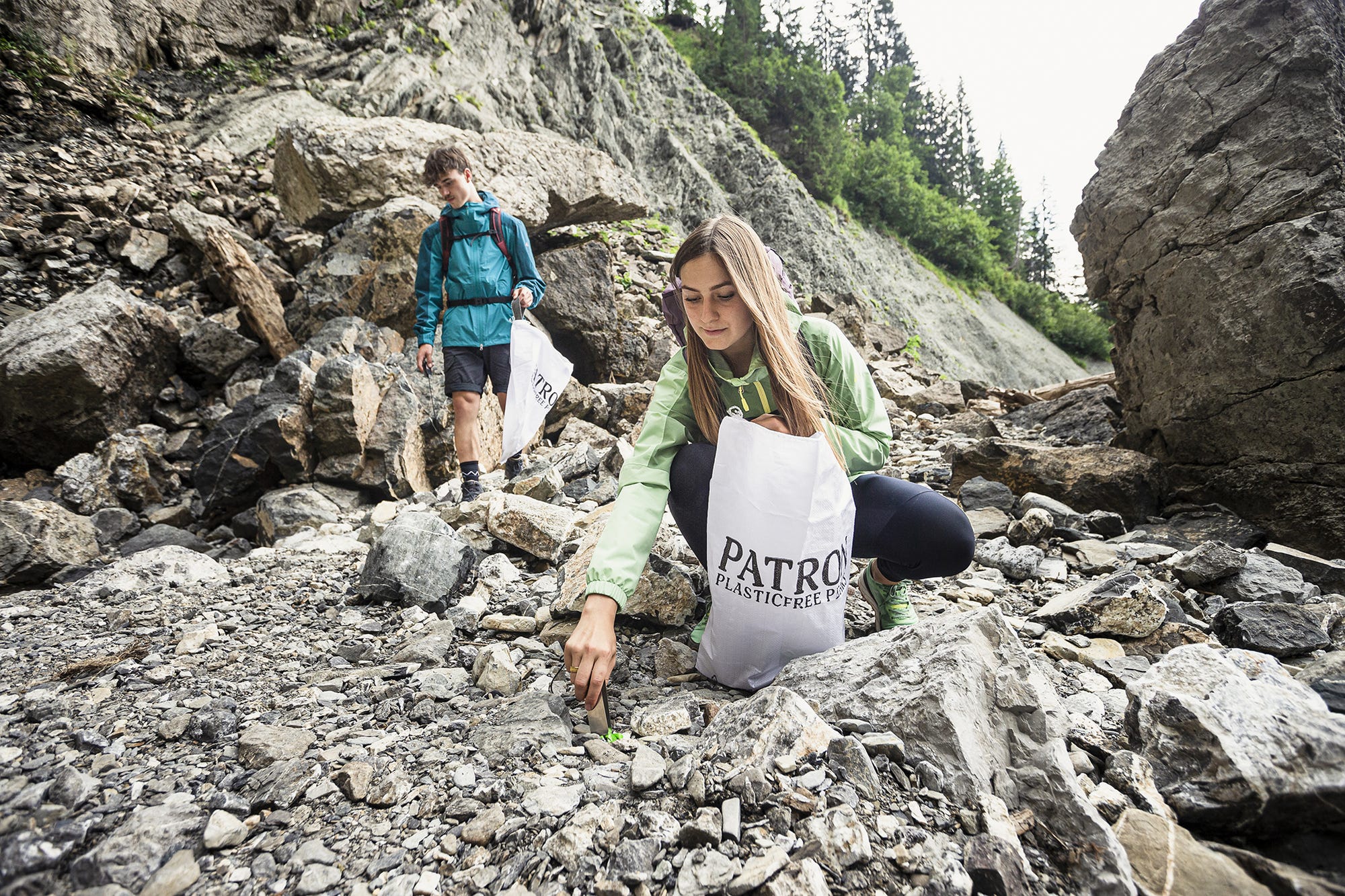Circular outdoor products: near future or distant vision?
The manufacture of sustainable, recyclable products is a major challenge, especially for outdoor clothing and equipment. We are actively tackling this challenge because protecting our planet comes first. To do this, it is important to leave familiar paths behind, because rethinking in the direction of a circular economy can positively change our world. In this blog article, we explain the obstacles that need to be overcome in the field of textile production.


Potential for textile circular economy is great
First of all, it is important to know that it is far from being a matter of course in the textile industry to recycle products. Even though we at VAUDE are already taking steps in this direction, there is still a lot of room for improvement in the entire textile industry. Only one percent of used clothing is recycled so far - a small drop in a big ocean. It is therefore all the more important to look to the future with optimism and to leverage the huge potential.


« Circular economy is one of the great challenges of our time. Even if the path to this goal is stony and often still unknown, it is enormously important to follow it. We need to use our limited resources more efficiently. »
What does circularity mean at VAUDE?
Circular economy and recyclable products are big terms that are becoming increasingly important, not only in the outdoor and textile industry. The principle seems simple at first glance: discarded products are recycled. But there is so much more behind it and, above all, there are numerous hurdles on the way to a closed loop.
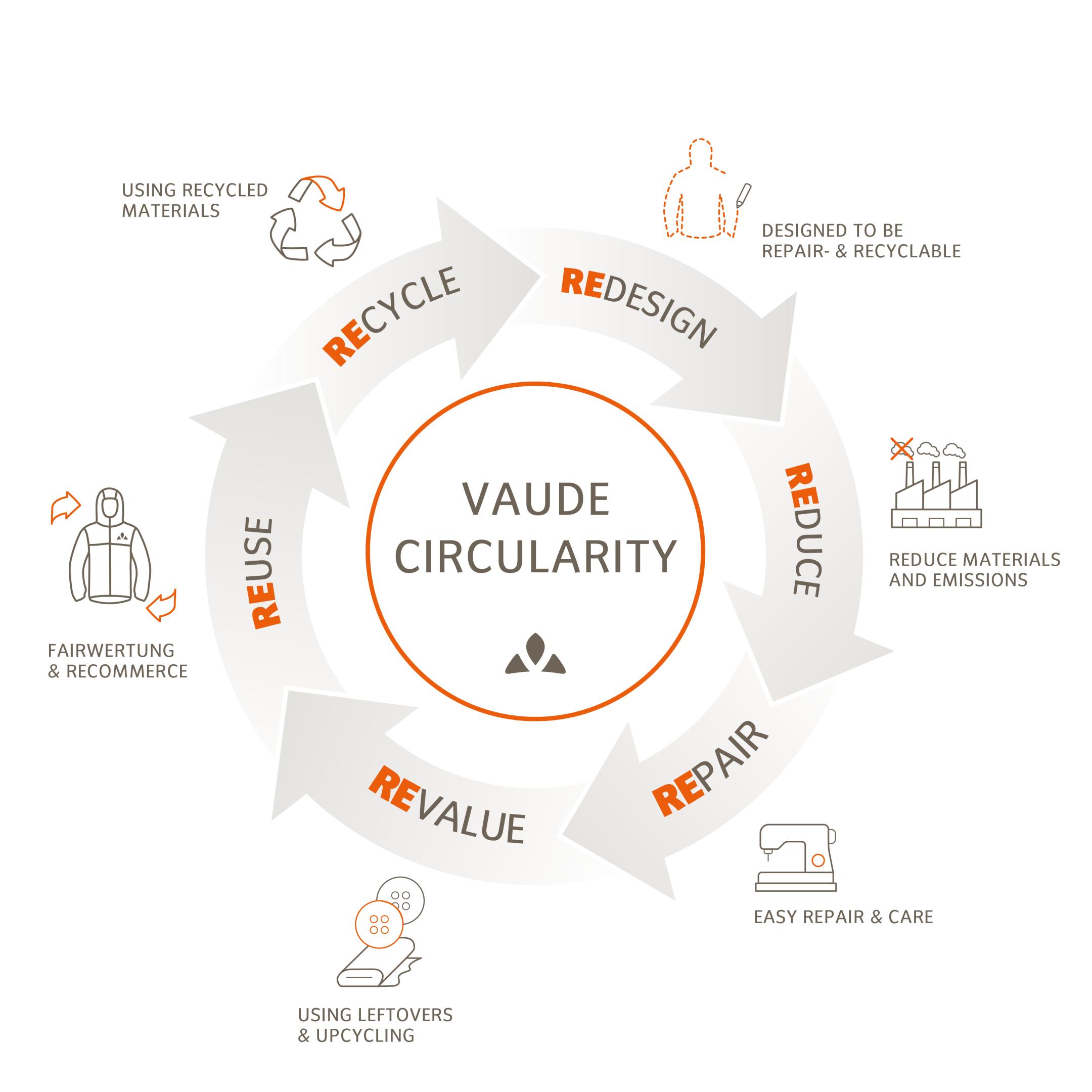

For us at VAUDE, circular economy means that we do not constantly consume new raw materials for the manufacture of our products, but instead use discarded products as material donors. This conserves the earth's finite fossil resources and makes a valuable contribution to protecting our planet. This action, which aims to minimize the ecological footprint, has an impact on the entire product life cycle of our VAUDE products: From production to use to disposal, the focus is on minimizing the impact on nature.
Varietal purity as a prerequisite for recyclability
During processing, it is necessary for recyclability that a product is as pure in type as possible. This means that it should be made from only one material if possible. In practice, however, this is unfortunately often difficult to implement, because in order to create a well-functioning product, materials have to be sewn, spun, glued or welded together. Here, we take care in the design to ensure that all materials are made of PET and yet still guarantee ideal functionality of the outdoor products. To ensure that recycling processes are in place in the future, VAUDE is involved in various projects and networks for cross-industry textile recycling.
As already mentioned, the most important thing with outdoor products is the function. An outdoor jacket that is not waterproof and windproof or bike pants that are not abrasion-resistant are of no use to outdoor enthusiasts. Therefore, a mix of materials is usually necessary, combining the best properties of different materials in one product - for maximum functionality and comfort. When we manufacture a product, whether a product can be repaired and recycled depends on the following factors:
- Choice of materials
- Combination of different materials
- Design requirements
- type of processing technologies
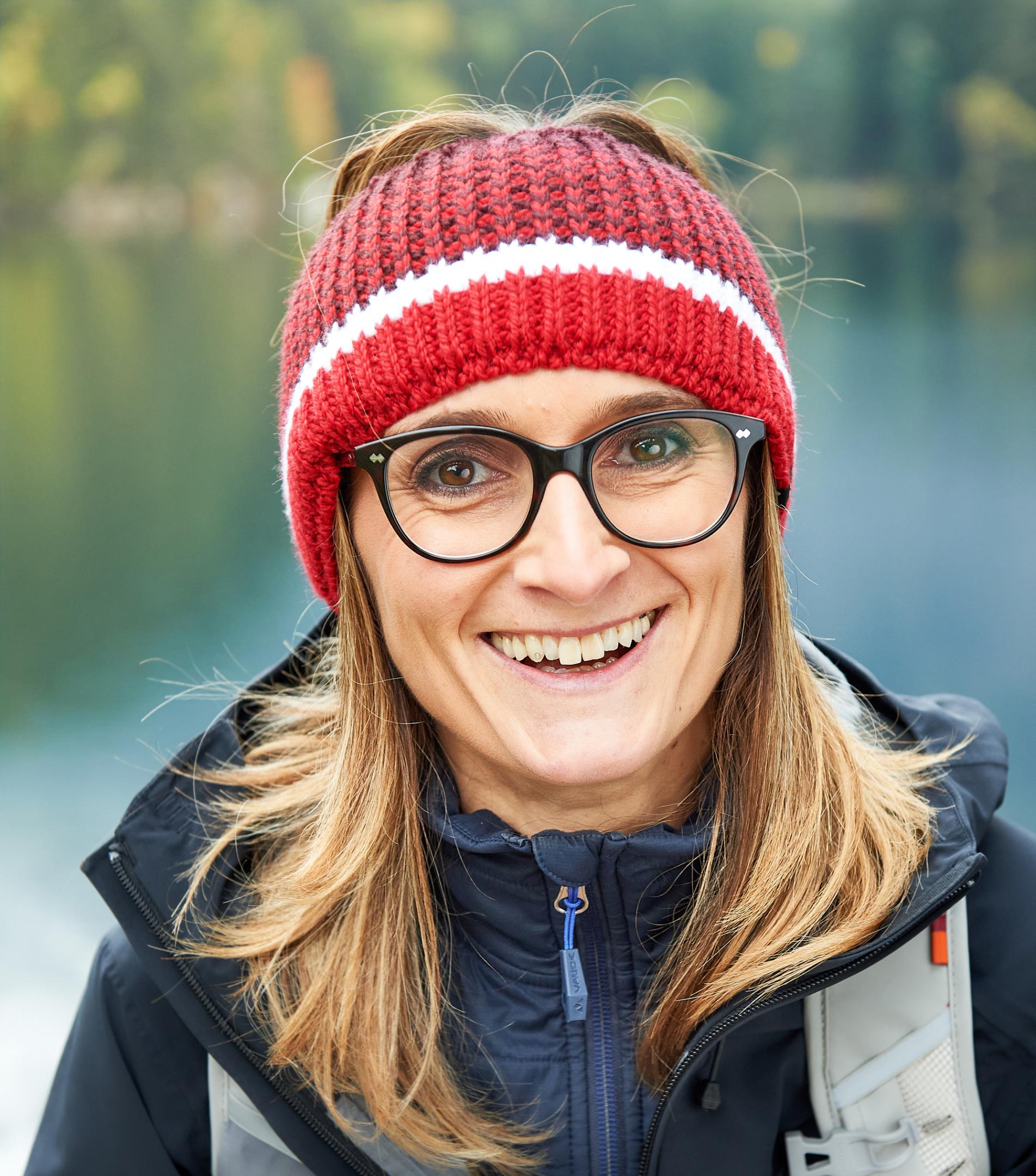

« If you look at grade purity in detail, you quickly realize: ....not everywhere that says polyester on it, PET is also in it....!!!! »
Rethinking for recyclable outdoor clothing down to every detail:
Many elements found on outdoor clothing and equipment have been rethought at VAUDE as part of the circular concept. Detachable parts and single-material products are the most important part of making an outdoor product recyclable. Unfortunately, this would often compromise functionality. This is how we solved the challenges in detail for RETHINK! products:
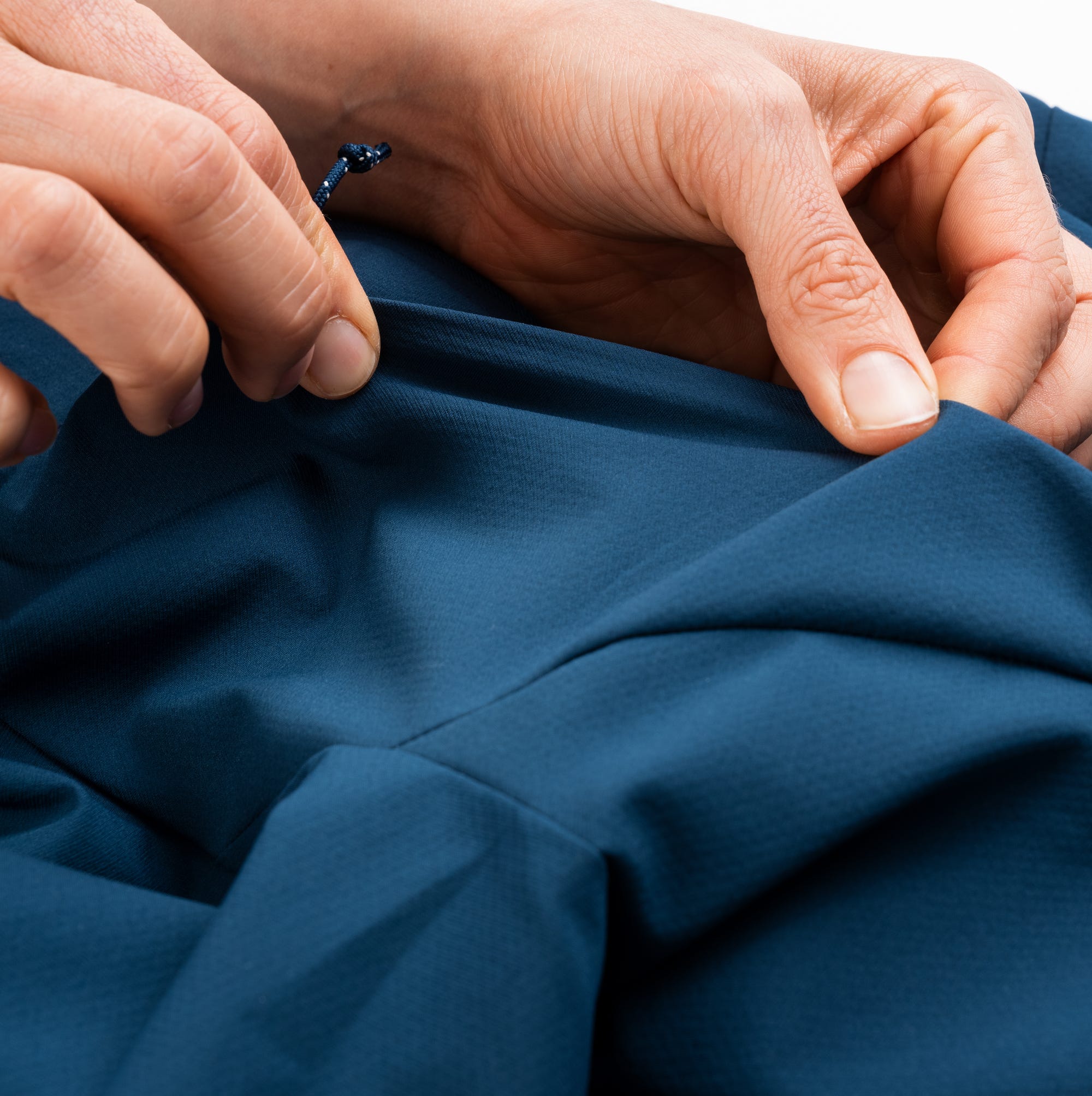

Mechanical Stretch:
To make a fabric stretchy, you usually mix in the pliable elastane. We use a mechanical stretch made of PET. This fabric ensures elasticity due to its woven structure. In backpacks, we have replaced the side pocket made of spandex with a side pocket with compression strap made of recycled PET. Re-thought details to ensure varietal purity.
Polyester zippers:
For bags, backpacks, jackets and more, they are the best closure method because of their ease of use. Velcro or roll closures are more complicated to use and put a lot of stress on the material. At VAUDE, we have switched to mono-material zippers from YKK (Natulon). The tape is made of recycled PET and the spiral of PET, both can be recycled. Only the slider is made of zinc, but it can be recycled in such a small proportion because it can be separated due to its higher melting point.
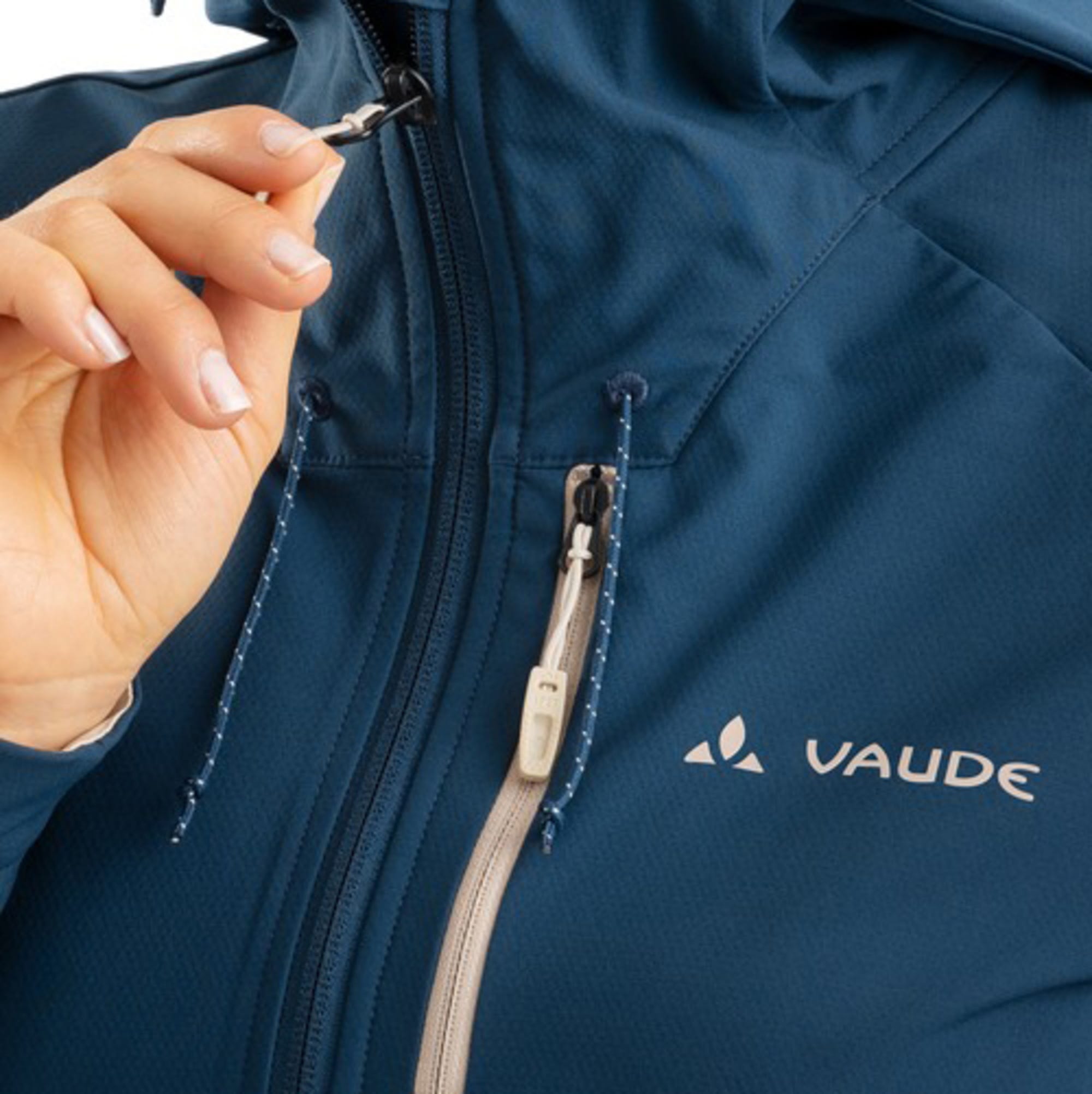

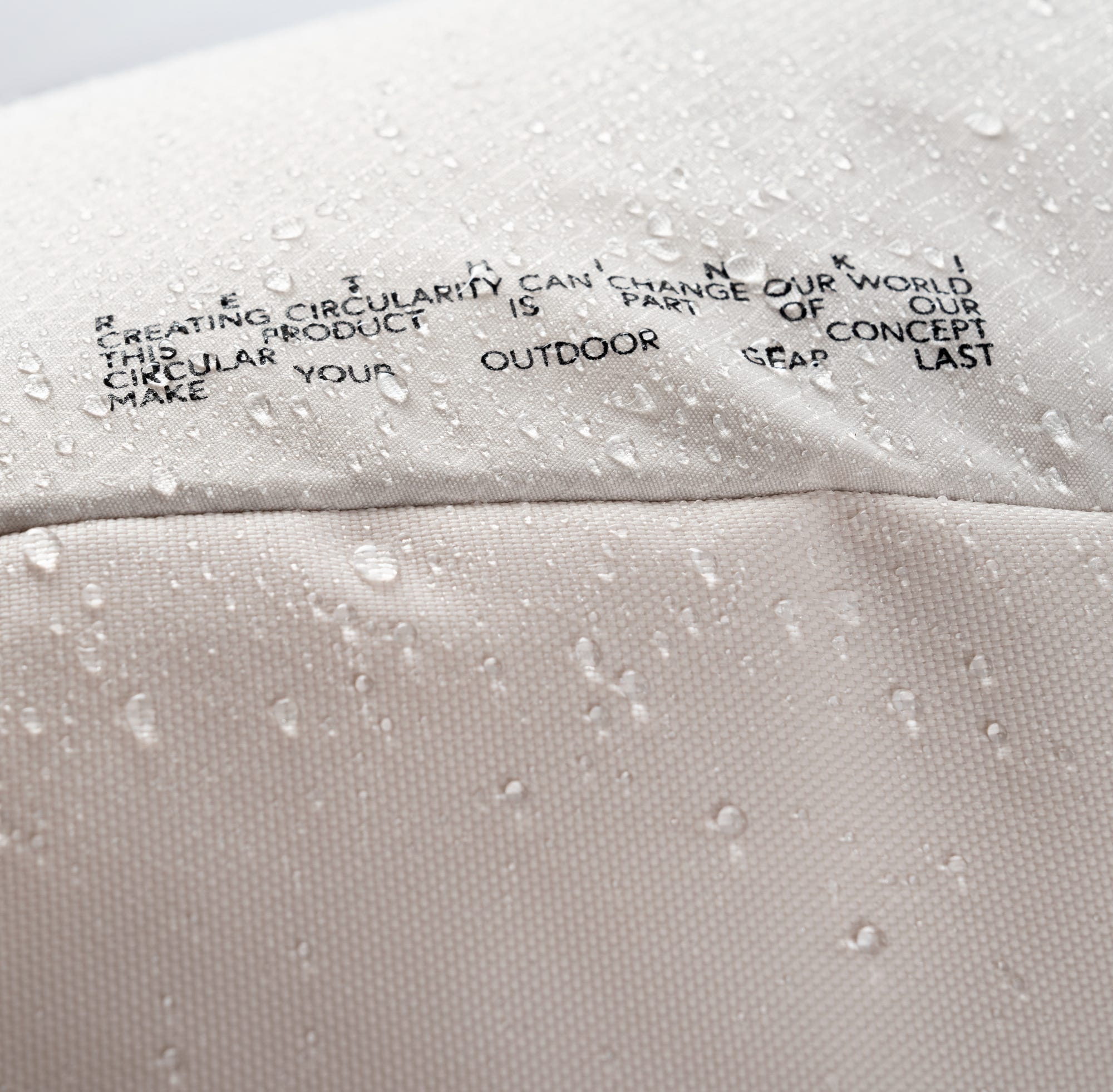

Innovative polyester weather protection:
The coating that provides wetness protection on backpacks is usually PU or TPU. We use, for grade purity, an innovative coating of PET for these backpacks.
Complex backpack back completely made of PET thanks to 3D-Airmesh technology:
A conventional backpack back consists of various materials. At this, we use a back completely made of PET, its varietal purity makes the backpack recyclable.
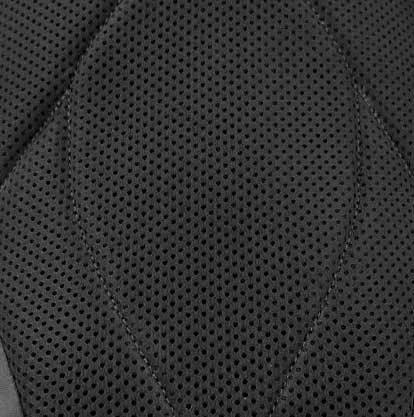

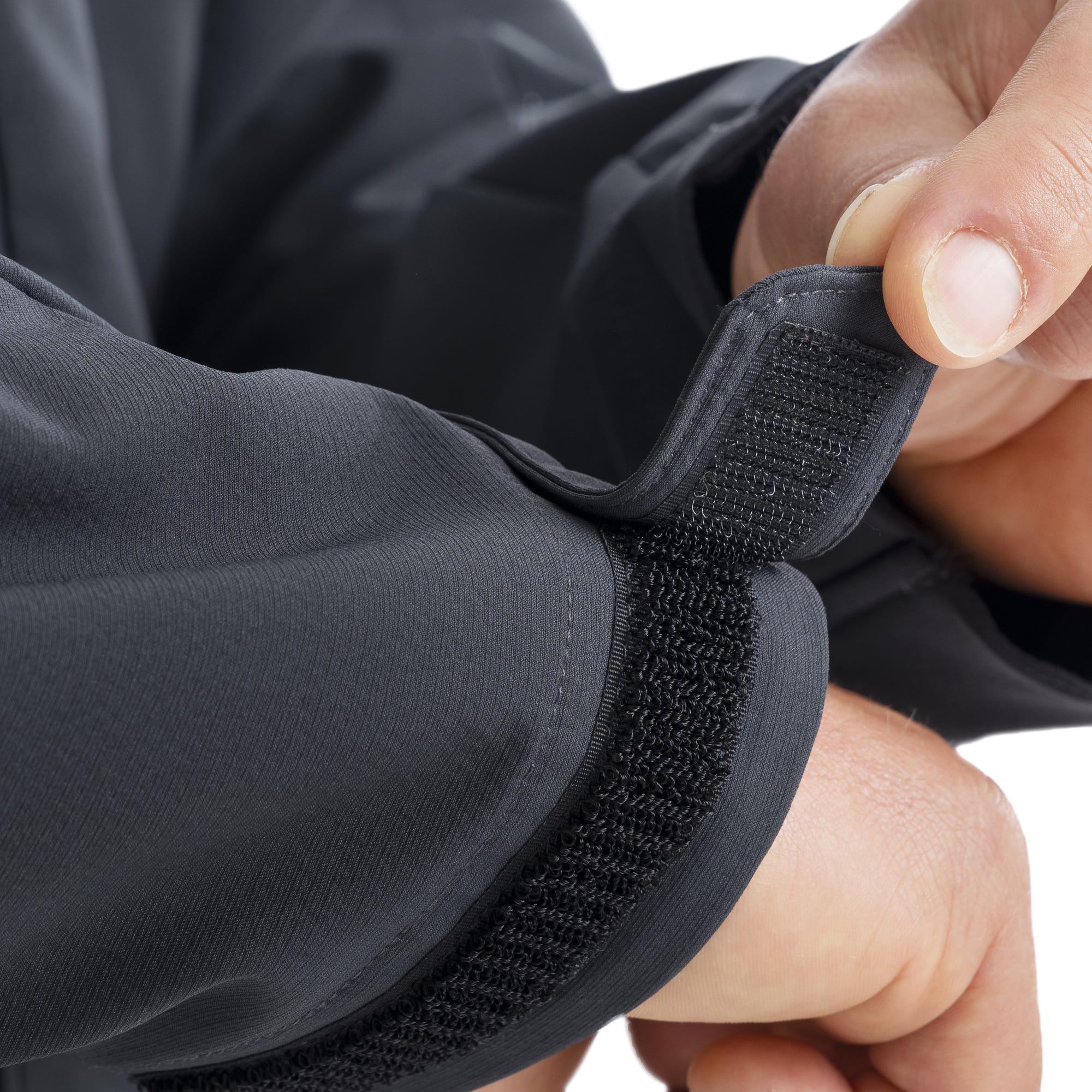

Cords & Adjustment:
All cords, cord stoppers, zipper pullers and Velcro closures used are made of recycled PET or PET and can be easily recycled with.
Removable parts as an alternative:
It's been a long road to this point: researching materials is often very tedious. In addition, suppliers often do not offer the required parts in the right material. Once these two steps are accomplished, the newly developed materials then still have to pass quality tests - all of which takes time. Overall, we have used as little as possible, but as much as necessary for good outdoor use, in terms of trims and adjustability in our products. Elements that are subject to heavy use are still made of recycled, durable polyamide. However, these are always removable parts, so they do not end up in the recycling.
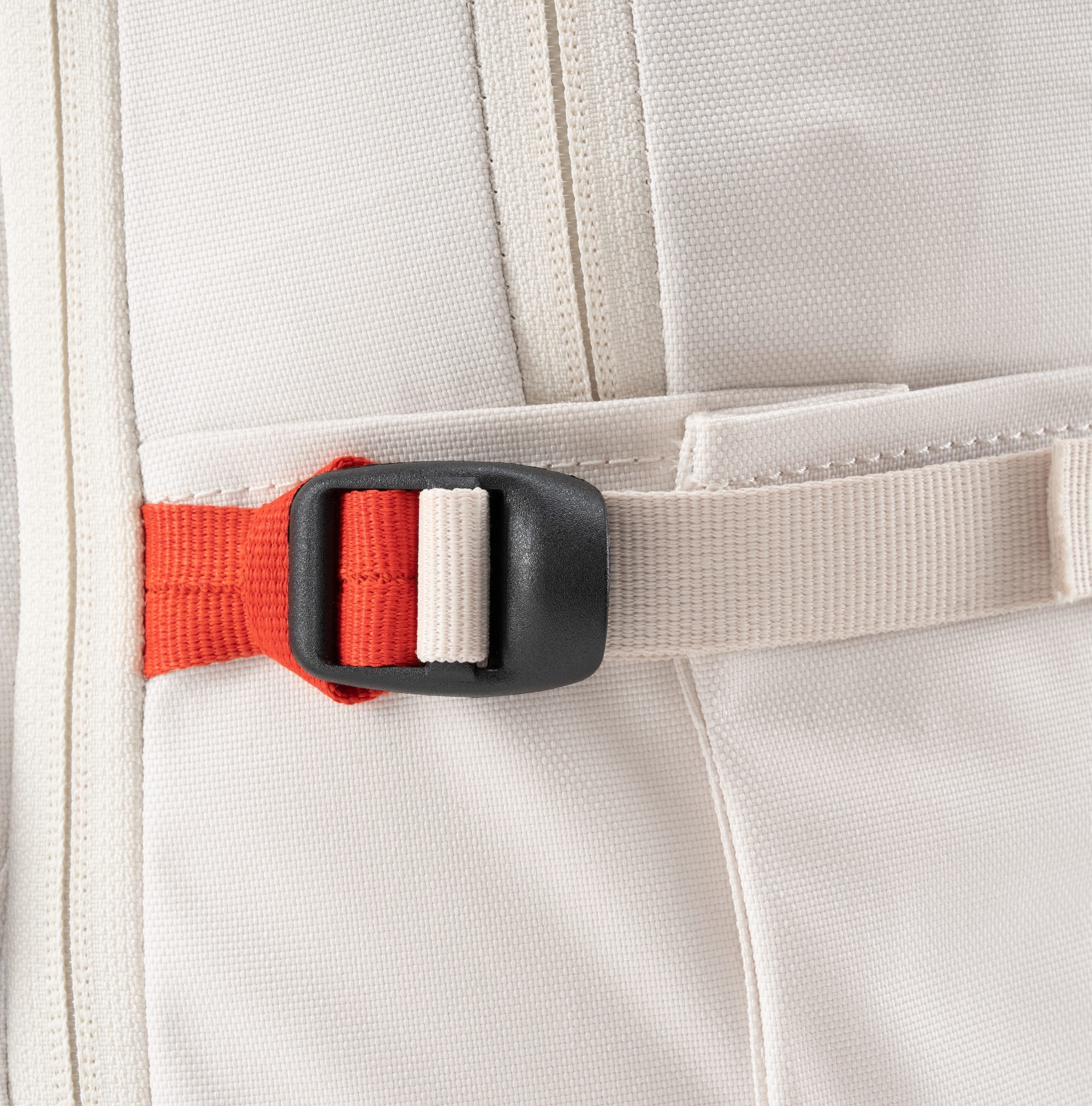

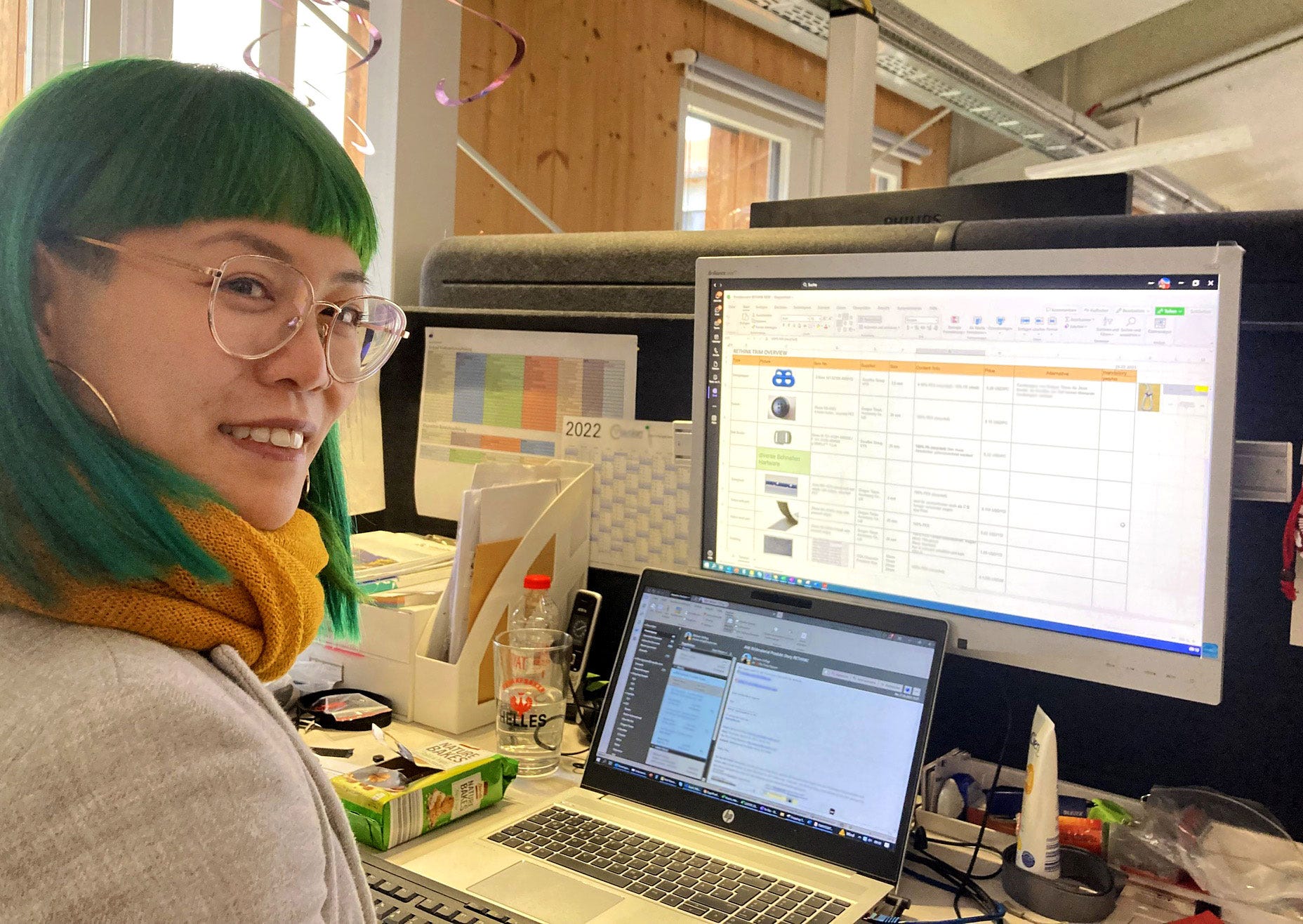

No circular economy without a unified take-back system
Our Corporate Social Responsibility team has been working with various players in the textile industry for several years to set up a holistic take-back system for textiles. At VAUDE, we have currently already succeeded in taking the next step towards a circular economy. With RETHINK! we have developed the first products that are part of our circular concept.
Currently, we are not yet allowed to market textile products with the label "recyclable" or "recyclable". We will now explain why this is the case.
"Recyclable" as a sales argument or consumer deception?
As long as the aforementioned uniform take-back system for textiles does not exist, products may not be marketed with the terms "recyclable" or "recyclable", even if we at VAUDE already fulfill these criteria with some products. These advertising claims are classified as misleading for consumers* if the item cannot be remanufactured into a new product due to the lack of a general take-back system. We are therefore actively working to promote a take-back system for textile products in a holistic manner.
Terms such as "single-variety" must also be weighed on the gold scale in advertising claims. While recycling companies do not require 100 percent varietal purity, consumers are unaware of these tolerances. For this reason, products may only be described as "single-variety" if they are actually mono-material - otherwise there is a risk of a penalty for deceiving consumers. In order to prohibit greenwashing in advertising claims in the future, the EU is planning a directive to protect consumers from deception. All these efforts are a step in the right direction.
We at VAUDE welcome the EU's efforts to take an important step towards a circular economy.
Our planet needs action - let's rethink together!
